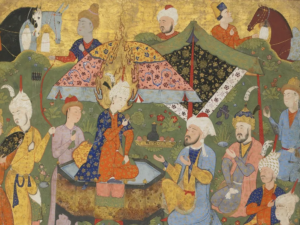Juneteenth, also known as Freedom Day, Jubilee Day, or Emancipation Day, is an important holiday in the United States that commemorates the emancipation of enslaved African Americans. On June 19, 1865, Union General Gordon Granger arrived in Galveston, Texas, and announced the end of slavery, more than two years after the Emancipation Proclamation was signed. Juneteenth carries deep historical significance, representing the resilience and determination of the Black community in the face of systemic oppression. Today, it serves as a time of reflection, education and celebration, reminding us of the progress made toward racial equality and the work that lies ahead.
To understand the meaning of Juneteenth, it is crucial to examine the historical context in which it originated. The Emancipation Proclamation, issued by President Abraham Lincoln in 1862, declared that all slaves in Confederate territory were to be freed. However, its enforcement depended on Union victory in the Civil War. On April 9, 1865, General Robert E. Lee surrendered, marking the end of the war. Despite this, news traveled slowly, and it wasn’t until General Granger’s arrival in Texas on June 19, 1865–with his troop that included several freed Black men–that many enslaved people learned of their freedom.
Juneteenth’s significance lies in the fact that it symbolizes the delayed liberation of enslaved African Americans. It represents the profound injustice and the struggle for equality that persisted even after the Emancipation Proclamation. The holiday is a testament to the perseverance and resilience of the Black community, highlighting their unyielding spirit in the face of adversity.
Juneteenth is a day to celebrate freedom, to honor the achievements and contributions of African Americans throughout history, including paying respect to Opal Lee, whose tireless activism helped in getting the holiday recognized. It serves as a reminder of the progress made in the fight for civil rights and equality. The holiday offers an opportunity for communities to come together, reflect on the past, and appreciate the struggles that have shaped the nation.
During Juneteenth celebrations, various events take place, such as parades, music performances, picnics, and educational activities, such as the Juneteenth Freedom Fest being held this weekend. These activities promote cultural awareness and understanding, fostering unity and solidarity among diverse communities. They also provide a platform to highlight the rich cultural heritage of African Americans and the positive impact they have had on society in areas such as art, music, literature, science, and sports.
Juneteenth serves as a call for education and reflection on the history of slavery and the ongoing struggle for racial justice. It encourages dialogue about the legacy of slavery and its lasting effects on society. Through educational initiatives, individuals can gain a deeper understanding of the struggles faced by African Americans and the importance of creating an inclusive and equitable future.
Recognizing that the fight for equality is far from over, Juneteenth prompts conversations about racial inequality, social justice and systemic racism. It serves as a catalyst for individuals to engage in self-reflection and examine their own biases and prejudices. By acknowledging the past and working towards a more just society, we can collectively address the injustices that persist today.
While Juneteenth symbolizes a commemoration of advancements, it also serves as a poignant reminder of the tasks that lie ahead. This is especially significant in the face of increasing violence endured by our communities, manifested through incidents of police shootings, persistently high rates of maternal deaths, and the ongoing obstacles to our intellectual pursuits, evident in the widespread adoption of laws against “critical race theory” and other forms of activism.
Achieving true equality and dismantling systemic racism requires ongoing commitment and action from individuals, communities and institutions. By embracing the spirit of Juneteenth throughout the year, we can work towards creating a society that values diversity, promotes inclusivity, and ensures equal opportunities for all. Juneteenth stands as a beacon of hope.
Juneteenth holds profound significance as a holiday that commemorates freedom while acknowledging the ongoing struggle for racial equality. It is a time for celebration, education, and reflection. By recognizing the achievements and contributions of African Americans and engaging in conversations about the past and present, we can work together to create a more inclusive and just society. Juneteenth reminds us that freedom and equality are not guaranteed but require continuous effort and commitment. Let us honor the past, celebrate the present, and strive for a future where the principles of Juneteenth are fully realized.




